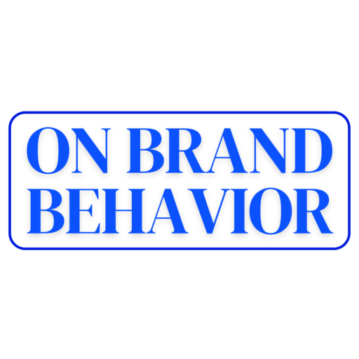People trust experts, leaders, and authoritative figures more than unknown brands. When a company, personal brand, or entrepreneur is positioned as an authority, customers assume their products and services are superior—even before trying them.
This is why businesses that establish credibility, expertise, and trustworthiness experience higher conversions, faster growth, and stronger brand loyalty.
If you want to position yourself as the go-to expert in your industry, you need to understand authority bias—the psychological tendency for people to follow and trust those they perceive as leaders.
What is Authority Bias?
Authority bias is the natural human tendency to trust, believe, and follow people or brands that appear credible, knowledgeable, and authoritative.
People assume if an expert recommends something, it must be the right choice. This is why brands use:
• Doctors in lab coats for medical ads
• Celebrities and industry leaders as brand ambassadors
• “As Seen In” media logos to boost credibility
When a brand is perceived as an authority, people trust it more, hesitate less, and are willing to pay premium prices.
Why Authority Positioning Matters for Your Brand
When your brand is seen as an expert in its space, it:
• Increases trust instantly (people assume you’re credible).
• Attracts premium customers (higher willingness to pay).
• Reduces objections and skepticism (customers assume your product works).
• Makes competition irrelevant (you become the go-to source).
If people don’t see your brand as an authority, they’ll choose a competitor who is.
The Five Strategies to Build Instant Authority in Your Industry
1. Leverage Social Proof & Third-Party Validation
People trust brands that others already trust. If a brand is featured in major media, endorsed by experts, or backed by real success stories, its perceived authority skyrockets.
Examples:
• Websites displaying “As Seen In” logos (Forbes, Business Insider, Fast Company) instantly gain credibility.
• Course creators use student testimonials and case studies to prove authority.
• Amazon sellers with thousands of 5-star reviews appear more trustworthy than unrated products.
How to Apply This:
• Get featured in press, podcasts, or expert interviews.
• Showcase logos of trusted media, partners, or clients on your website.
• Use testimonials, case studies, and user success stories to reinforce authority.
The more external validation your brand has, the stronger your perceived authority.
2. Publish High-Value Content That Educates & Positions You as an Expert
Experts teach, educate, and provide insights—they don’t just sell. Brands that consistently publish valuable content position themselves as the authority in their niche.
Examples:
• Neil Patel built authority in SEO by publishing thousands of free guides.
• HubSpot dominates inbound marketing by offering in-depth blog posts, webinars, and courses.
• Harvard Business Review reinforces expertise by publishing thought leadership articles.
How to Apply This:
• Create long-form, educational content that solves real problems.
• Publish industry insights, frameworks, or expert breakdowns.
• Share actionable strategies instead of just promoting your products.
Authority comes from teaching, not selling. The more valuable your content, the more trust you build.
3. Establish Authority Through Thought Leadership & Speaking Engagements
Experts don’t just follow trends—they lead the conversation. If you want to be seen as a top industry leader, you need to position yourself at the forefront of industry discussions.
Examples:
• Gary Vaynerchuk built his brand by speaking at conferences and producing thought leadership content.
• Elon Musk leverages Twitter and interviews to shape industry discussions.
• TED speakers instantly gain credibility because of the high status of the TED platform.
How to Apply This:
• Speak on podcasts, panels, and industry events.
• Write guest articles for major publications.
• Create unique perspectives and frameworks that make people see you as an innovator.
When you become a thought leader, people come to you for insights—not just products.
4. Use Professional Branding to Reinforce Authority
Your brand’s visual identity, messaging, and design affect how authoritative it looks. If your branding is inconsistent, unpolished, or unprofessional, people won’t see you as an expert.
Examples:
• Luxury brands use minimalist, high-end visuals to reinforce exclusivity.
• Consulting firms use clean, modern branding to appear professional and credible.
• High-authority brands have consistent color palettes, fonts, and messaging.
How to Apply This:
• Use high-quality design and professional branding.
• Keep your messaging clear, confident, and expert-driven.
• Ensure every brand touchpoint feels premium and well-executed.
People associate polished branding with authority.
5. Associate Your Brand with Influential People & Organizations
Authority is often borrowed—if you align with trusted experts, brands, or organizations, their credibility transfers to you.
Examples:
• Tony Robbins built authority through mentorships with top business leaders.
• Businesses that partner with Fortune 500 companies gain instant credibility.
• Experts who collaborate with Harvard, MIT, or government organizations increase their trust factor.
How to Apply This:
• Partner with respected brands, influencers, or industry experts.
• Feature collaborations, guest contributions, and endorsements.
• Align with organizations that reinforce credibility and expertise.
The stronger your associations, the stronger your authority positioning.
How to Apply Authority Bias to Your Business
If you want customers to see you as the go-to expert, apply these five authority-building strategies:
1. Leverage social proof and third-party validation.
2. Publish educational content that demonstrates expertise.
3. Engage in thought leadership through speaking, writing, and industry discussions.
4. Ensure your branding is professional and polished.
5. Align with influential people, brands, and organizations.
When your brand is perceived as the leader in its space, customers will trust, follow, and buy from you effortlessly.
What’s Next?
If you want to learn how to position yourself as an industry authority and build long-term trust, check out On Brand Behavior’s resources.
Which brands or individuals do you see as the strongest authorities in their field? Let’s discuss.
